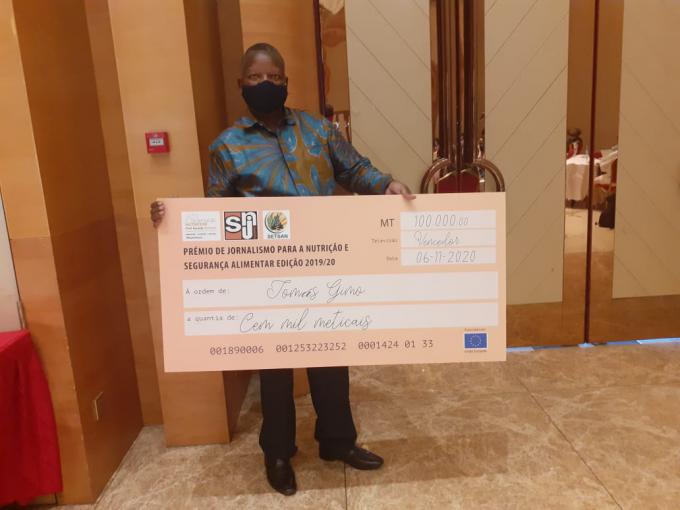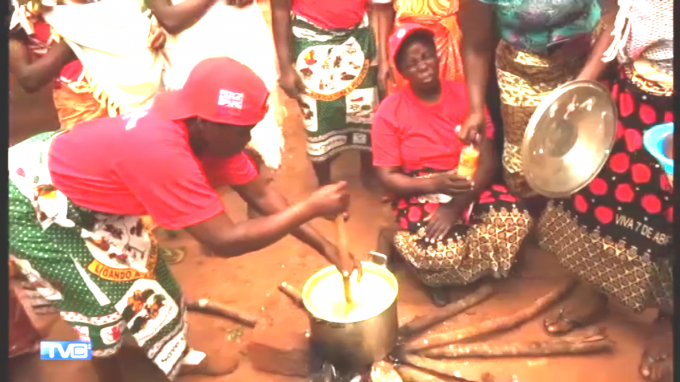Feature artcile on LAN project awarded in Maputo
For the best possible reasons, Save the Children was in the center of attentions, last week, within the finest of journalism and the main actors in the area of food security and nutrition in Mozambique. The achievement was due to the selection of a feature article on his project “Connecting Agriculture and Nutrition” as the big winner of the Annual Journalism Award in Nutrition and Food Security, an initiative promoted by the the Scaling Up Nutrition (SUN- Mozambique), a civil society platform, and certified by the National Union of Journalists (SNJ) and by the Technical Secretariat for Food and Nutritional Security (SETSAN)
The award took place in one of the hotels in the city of Maputo and distinguished Tomás Gimo, a journalist from the Social Communication Institute (ICS) in Manica, the author of the journalistic article, TV category, in a competition financed by the European Union aiming to stimulate research and journalistic writing on food security and nutrition.

About the LAN project
The Connecting Agriculture and Nutrition (LAN) project is being implemented by Helen Keller International (HKI), in Tete province, and by Save the Children, in Manica province, and aims to contribute to the reduction of levels of chronic malnutrition in these two provinces. It is financed by the British Government, through the FCDO (The Foreign, Commonwealth and Development Office - formerly DFID).
The LAN has been implemented since November 2017 in five districts of Manica province (Machaze, Tambara, Macossa, Guro and Bárue) and in an equal number of districts in the province of Tete (Mutarara, Moatize, Cahora Bassa, Changara and Tsangano) in central Mozambique.

The project pays particular attention to pregnant women and caregivers of children under five years of age by encouraging the adoption of essential hygiene and nutrition behaviors, promoting agricultural initiatives to ensure food and nutrition security, while seeking to reduce gender disparities in the work and decision-making in the households.
 Mozambique
Mozambique